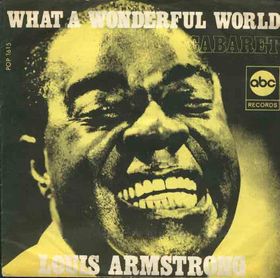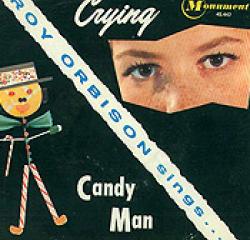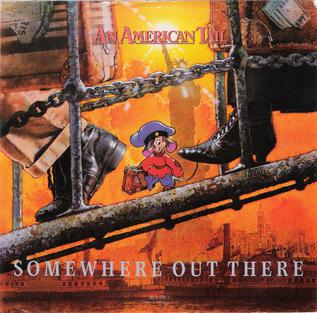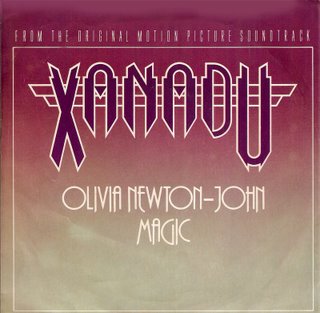
Lawrence Henry Gowan is a Scottish born Canadian singer and keyboardist. He was born in Glasgow and raised in the Toronto suburb of Scarborough, Ontario. Gowan has been both a solo artist and lead vocalist and keyboardist of the band Styx since May 1999. His musical style is usually classified in the categories of pop and progressive rock.

"What a Wonderful World" is a song written by Bob Thiele and George David Weiss. It was first recorded by Louis Armstrong and released in 1967 as a single. In April 1968, it topped the pop chart in the United Kingdom, but performed poorly in the United States because Larry Newton, the president of ABC Records, disliked the song and refused to promote it.

"Knockin' on Heaven's Door" is a song by American singer-songwriter Bob Dylan, written for the soundtrack of the 1973 film Pat Garrett and Billy the Kid. Released as a single two months after the film's premiere, it became a worldwide hit, reaching the Top 10 in several countries. The song became one of Dylan's most popular and most covered post-1960s compositions, spawning covers from Eric Clapton, Guns N' Roses, Randy Crawford, and more.

"Crying" is a song written by Roy Orbison and Joe Melson for Orbison's third studio album of the same name (1962). Released in 1961, it was a number 2 hit in the US for Orbison and was covered in 1978 by Don McLean, whose version went to number 1 in the UK in 1980.

"Run to You" is a song performed by American singer and actress Whitney Houston, released on June 21, 1993, by Arista Records as the fourth single from The Bodyguard: Original Soundtrack Album (1992). It was written by Jud Friedman and Allan Rich, and produced by David Foster. Originally intended to be a break-up song, it was approved by the production and stars. However, a month later, the director of The Bodyguard called, saying he liked the song so much, but he'd rather have it to be a love song so the entire song was rewritten, except for the title.

"Angel of the Morning" is a popular song written by Chip Taylor, originally recorded by Evie Sands but which first charted with a version by Merrilee Rush. The song has been covered by many artists including Chrissie Hynde, Dusty Springfield, P. P. Arnold, Connie Eaton, Mary Mason, Guys 'n' Dolls, Melba Montgomery, Olivia Newton-John, Bettye Swann and most recognizably by Juice Newton.

"Save the Best for Last" is a song by American singer and actress Vanessa Williams, released in January 1992 as the third single from her second studio album, The Comfort Zone (1991). The song was written by Phil Galdston, Wendy Waldman, and Jon Lind. It is a ballad about a young female admirer of a single man who stands by and watches as the object of her desires goes through years of dating, before he finally unexpectedly decides to initiate a relationship with the singer. The lyrics' redemptive themes resonated with Williams' story, as she had put together a successful music career following her earlier Miss America resignation scandal.

"This Used to Be My Playground" is a song recorded by American singer Madonna. It is the theme for the film A League of Their Own, which starred Madonna, and portrayed a fictionalized account of the real-life All-American Girls Professional Baseball League. Madonna was asked to record a song for the film's soundtrack. At that time she was busy recording her fifth studio album, Erotica, with producer Shep Pettibone. They worked on some ideas and came up with "This Used to Be My Playground" in two days. Once presented to director Penny Marshall's team, the song was released as a standalone single on June 16, 1992, by Warner Bros. Records. However, it was not available on the film's soundtrack due to contractual obligations and was later added to the Olympics-inspired Barcelona Gold compilation album, released that summer. The song was included on Madonna's 1995 ballads compilation Something to Remember.

"In the Still of the Nite", also subsequently titled "In the Still of the Night", is a song written by Fred Parris and recorded by his band the Five Satins. Originally the song was titled "(I'll Remember) In the Still of the Nite" to distinguish itself from Cole Porter's "In the Still of the Night". Later the title was changed to "In the Still of the Night".

"Ghostbusters" is a song written by Ray Parker Jr. as the theme to the film of the same name, and included on the film's soundtrack. Debuting at number 68 on June 16, 1984, the song peaked at No. 1 on the Billboard Hot 100 on August 11, staying there for three weeks, and at No. 2 on the UK Singles Chart on September 16, staying there for three weeks. The song reentered the UK Top 75 on November 2, 2008 at No. 49 and again on November 5, 2021, at No. 38.

"If You Asked Me To" is a song written by American songwriter Diane Warren. It was originally recorded by American singer Patti LaBelle for her ninth studio album, Be Yourself (1989), and also for the soundtrack to the James Bond film Licence to Kill. The lyrics are from the point of view of a woman who pleads to her significant other: "If you asked me to, I just might change my mind, and let you in my life forever". Three years later, Canadian singer Celine Dion covered the song for her 1992 self-titled second English-language studio album. Released as the album's second single, Dion's version topped the Canadian charts and peaked at number four on the US Billboard Hot 100.

"Something He Can Feel" is a song composed by Curtis Mayfield for the 1976 motion picture Sparkle. The song, a love ballad in a Chicago-/Philly-soul style, became a number-one hit on the Billboard's R&B singles chart in the United States twice with two separate recordings: a 1976 version by Aretha Franklin from the film's soundtrack, and a 1992 cover by girl group En Vogue.

"I Love the Nightlife (Disco 'Round)" is a popular disco song recorded by American singer-songwriter Alicia Bridges in 1978. It was released as the first single from her debut album, Alicia Bridges (1978), and went to number two on the US Billboard National Disco Action Top 30 (now the Dance Club Songs chart) for two weeks. It became a crossover hit, peaking at number five on the Billboard Hot 100, and found worldwide success, reaching the top 10 in Australia, Belgium, Canada, the Netherlands and South Africa, as well as making the reaching the top 30 in the UK. A re-release in 1994 allowed the song to reach number four in New Zealand and number five in Iceland.

"Oh Happy Day" is a 1967 gospel music arrangement of the 1755 hymn by clergyman Philip Doddridge. Recorded by the Edwin Hawkins Singers, it became an international hit in 1969, reaching No. 4 on the US Singles Chart, No. 1 in France, Germany, and the Netherlands and No. 2 on the Canadian Singles Chart, UK Singles Chart, and Irish Singles Chart. It has since become a gospel music standard.
"Wild One" or "Real Wild Child" is an Australian rock and roll song written by Johnny Greenan, Johnny O'Keefe, and Dave Owens. While most sources state that O'Keefe was directly involved in composing the song, this has been questioned by others. Sydney disc jockey Tony Withers was credited with helping to get radio airplay for the song but writer credits on subsequent versions often omit Withers, who later worked in the United Kingdom on pirate stations Radio Atlanta and, as Tony Windsor, on Radio London.

"Somewhere Out There" is a song released by MCA Records and recorded by American singers Linda Ronstadt and James Ingram for the soundtrack of the animated feature film An American Tail (1986). The song was written by James Horner, Barry Mann, and Cynthia Weil, and produced by Peter Asher and Steve Tyrell. It reached number eight in the United Kingdom, number six in Ireland, and number two in both the United States and Canada.

"Magic" is a song recorded by British-Australian singer Olivia Newton-John for the soundtrack to the 1980 musical fantasy film Xanadu. Written and produced by John Farrar, the song was released as the lead single from the album in May 1980 and topped the US Billboard Hot 100 for four weeks beginning on August 2. On August 30, it was displaced from the top by Christopher Cross's "Sailing".
Paul Zaza is a Canadian Genie Award-winning film score and songwriter who worked frequently with director Bob Clark and with fellow composer Carl Zittrer. He has composed scores for more than 100 films.

"Love Is in the Air" is a 1977 disco song by Australian singer John Paul Young. It was written by George Young and Harry Vanda, and released as the lead single from Young's fourth studio album, Love Is in the Air (1978). The song became a worldwide hit in 1978, peaking at No. 3 on the Australian charts and No. 5 on the UK Singles Chart. In the United States, it peaked at No. 7 on the pop chart and spent two weeks at No. 1 on the Adult Contemporary chart, his only U.S. top 40 hit. The song plays at 122 beats per minute, a typical 1970s disco rhythm. At the Australian 1978 King of Pop Awards, the song won Most Popular Australian Single. In 1992, a remix of the song was released and featured on the soundtrack to the Golden Globe-nominated film Strictly Ballroom. A new music video was also produced.

"A Criminal Mind" is a song by Scottish-born Canadian artist Lawrence Gowan. Released in January 1985 as the lead single from second studio album, Strange Animal, it reached number five in Canada. Gowan refers to it as one of his signature songs.

















